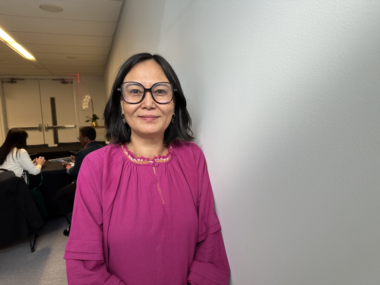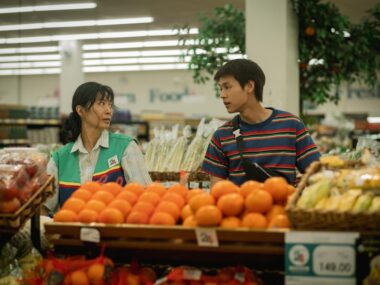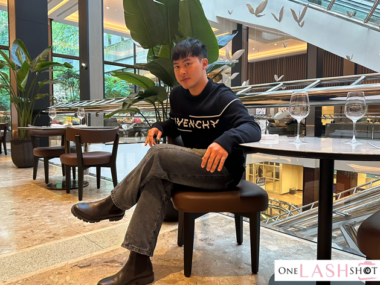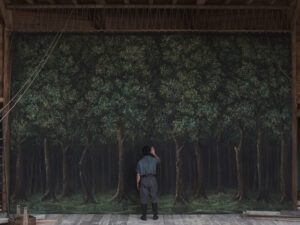Vanridee Pongsittisak is one of the most celebrated producers in the Thai film industry, having an outstanding career with the major Thai film studio GDH 559 (and its predecessor GTH). She is also a member of the Board of Directors of GDH. Her movies Bad Genius, How To Make Millions Before Grandma Dies and now The Paradise of Thorns, have taken the Thai film industry to international platforms with a ground-breaking success rate.
The spectacular, dark melodrama, The Paradise of Thorns (Wiman Nam), made its International Premiere at the Toronto International Film Festival on September 9, marking the feature film debut of director Boss Kuno.
One Lash Shot had the opportunity to speak with Vanridee Pongsittisak, the chief producer, about the behind-the-scenes of this project.
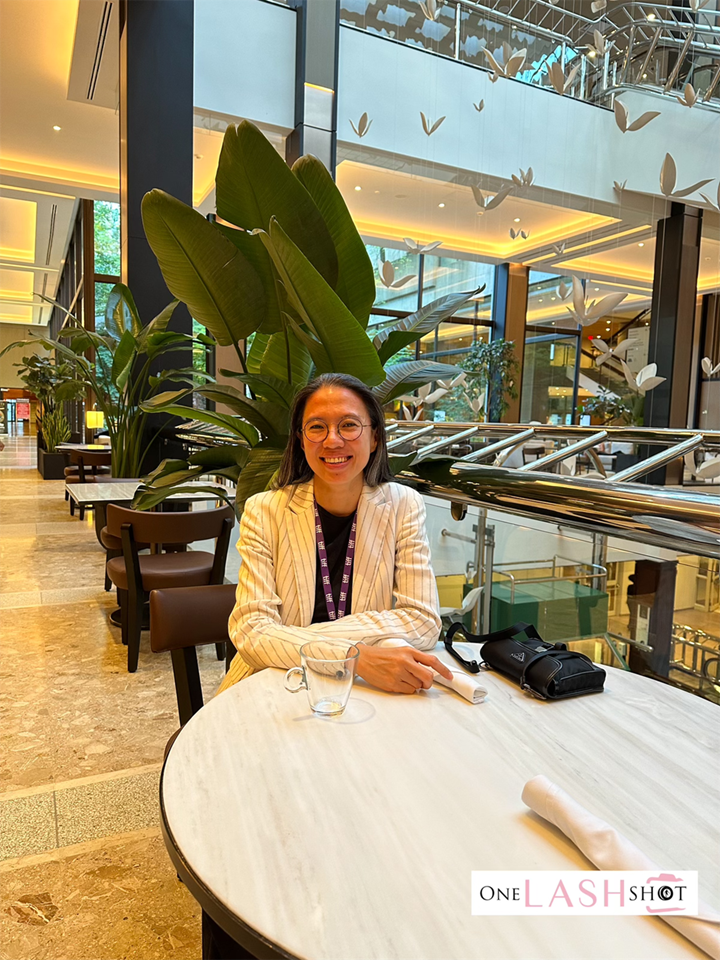
What made you become a producer?
When I started in the film industry, I didn’t know what I wanted to be. But then I started as a script doctor for Jira Maligool who is veteran for GDH and GTH (major Film Studio in Thailand, subsidiary of GMM Grammy). After 3-4 years, the CEO and Jira, felt that I was ready to become a producer myself. At that time, I didn’t even know the difference between being a producer and a script doctor. But once I started working as a producer, I liked the opportunities I received to initiate projects and make it happen.
This year you had two projects – How To Make Millions Before Grandma Dies and The Paradise of Thorns. Specifically, how are you managing the success of both these movies that are currently breaking box-office records?
Actually, when I was working on How To Make Millions Before Grandma Dies and The Paradise of Thorns, I was working on 4 projects at the same time.
After working in the film industry for over 20 years, it was natural for me to become interested in producing international scale projects. But when I work on my project, I don’t try to force a movie to go into the international market, it just happened naturally.
When I make a film, it starts with a very good idea, a really good script and universal themes like gratitude and family-bonding which can connect with so many cultures world-wide. That’s probably why How To Make Millions Before Grandma Dies became such an international success.
I did not enforce it such that it has to become a success in China, Vietnam or Indonesia- it just happened naturally. It also confirmed that I was ready to produce more international-scale projects. The first one that became a hit on a global scale was Bad Genius.
The pre-production process is actually the interesting part. How did you go about it for The Paradise of Thorns?
The script writing team did very deep research on how the locals in the northern area of Thailand live. Our lifestyle is quite different from what’s in the movie, so we didn’t know how they really lived. So, while doing research, we uncovered surprising things and aspects of life and people in the local areas. I wanted to make a true account of what was really happening in those areas.
For example, for the location of the durian orchard, we wanted to find the perfect orchard for the film. We tried to do our homework very well and teamwork was very important. The director himself and everyone in the team knew that the production would not be started until everything was perfect and right, based on the script. Even the house in the movie— it was built and left there for 5-6 months, so it looks like it’s gone through some times like heavy winds etc. It doesn’t look newly built. Then we took the cast there and that’s how they got emotionally connected to the place and the storyline.
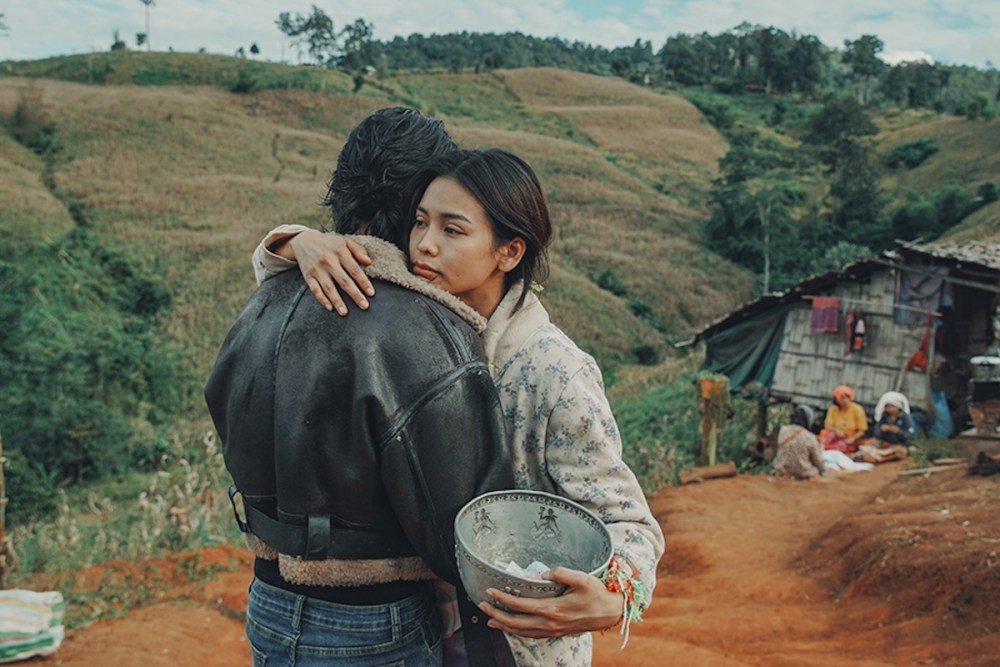
For the costumes, we had bought a new set of clothes and then we exchanged it with the real locals living there. So, what you see the cast wearing in the movie is really what the countryside people wear in real life.
What did your budget look like for this movie?
The budget for this film is average for a GDH production. But it’s above average for a usual Thai film. GDH is focused on delivering outstanding production quality and they don’t compromise on that factor. What was expensive was building the house. But we creatively strategized how to spend the budget. For instance, for the monk ceremony it was difficult to find the accurate clothing that they wore in real life. We asked the locals to bring what they wore during that traditional ceremony, so it was exotically portrayed. The locals really appreciated the effort we put into making this film in a true-to-life manner.
Was it hard to attract to investors for this movie?
It’s fully self-financed typically, that’s how GDH works. For this one, we did sign-up with a partner, Jai Studios, to make this movie marketable within the Thai market. ‘Jai’ means ‘heart’.
What do you usually look for in a script before selecting a project?
Usually when I select which screenplay to work on, it starts with the idea, then the director and then I make sure that the director and me as the producer share an aligned vision for the project. Once this is done, it takes around 1.5 years to completely co-develop it. The producer and director will know each other so well and know the project so well, that’s how I know what’s the best way to support each director. That’s why for The Paradise of Thorns, what caught my eye was true love and marriage inequality in Thailand. I have been wanting to work with Boss (the director) for quite some time. It was interesting- Boss, this issue and the whole package. That’s how all this came about.
How did you go about choosing Boss?
He chose me (laughs)…
What were the qualities you liked when he said he wanted to work with you?
He has magic (laughs).
Was it a similar process for zeroing down on the cast who played complicated roles?
Director Boss Kuno:
Since the story itself was pretty complicated, the level of complexity of all the characters that had to be played by the cast had to be understood by them. The first thing I really wanted the actors to have, was for each one to have a similar experience to the character.
For example, for the role of the protagonist ‘Thongkam’, Jeff Satur as an actor needed to understand the topics of LGBTQ+, marriage inequality and simultaneously have the heart of a fighter to really understand why the character chose to be that person. Jeff himself fought very hard throughout his career so far, so was able to empathize with the character, thus making him the best choice for the role.
Engfa Waraha who played ‘Mo’ was really hard to cast. It’s hard to find a person who can really understand the hardships faced by someone fighting in the countryside. But she has a similar experience as her character did. That’s the base of the situation as she was able to bring out natural feelings through her acting.
Srida Puapimol who played the ‘Mother Saeng’, also actually lost her son in real life. So, she too shared the same feeling as the character in many ways.
As the producer of this film, how do you measure the success of this film?
There are many dimensions of how I measure the success of the film. The easiest way is definitely to measure the box office success and breaking the box office in Thailand. That’s good for the investors. But as a Thai film, it’s rare to see films that focus on social issues to make a hit at the box office. And, being selected for international, prestigious film festivals like TIFF is such an honour. The reactions from the audience with true stories based on watching the movie (like what happened yesterday at its premiere)— was an emotional moment for all of us. It was amazing to see how our story-telling helped them to connect with us.
Many people might not know what’s happening in other parts of the world. Thai people are also quite easy-going, friendly- we are from the land of smiles and never take things too seriously. We never go against anything intensely.
When we talk about like some serious stuff like inequality and social issues in this film, we get people to really come out of the theatre and start questioning whether it’s actually happening in our society, in our country. Is this right? Should we let this continue? Or should we do something to make it better? We received so many diverse reactions even within Thailand. It was really amazing to see how people were made to be more aware and reactive to this story. Things that are happening in our country— like the importance of same-sex marriage, can an LGBTQ+ person save his partner’s life?
What’s next for you after the undoubted success of The Paradise of Thorns?
I have a couple of upcoming movies. I can share one of them. Back in July, the movie Flat Girls was announced by GDH. It is directed by a new female filmmaker, Jirassaya Wongsutin. I picked up her story and worked on the project.
Another one is also directed by a first-time film director.
I like working with young filmmakers and bringing their movies to platforms across the world. Everyone at GDH, including Jira and I, are all trying to focus on creating such platforms to bring together young directors who can create and speak about things they really care about.
[Author’s note: Thank you to Ms. Vanridee and team for bringing this movie (and several others) to life. Additionally, special thanks to Yanisa for facilitating the translation from Thai to English]

